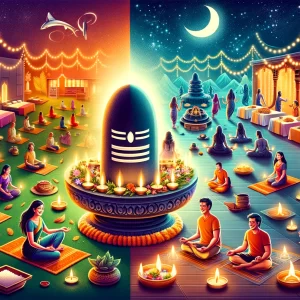Depression is a mood disorder that causes a persistent feeling of sadness and loss of interest. Also called major depressive disorder or clinical depression, it affects how you feel, think and behave and can lead to a variety of emotional and physical problems. You may have trouble doing normal day-to-day activities, and sometimes you may feel as if life isn’t worth living. what is the symptoms of depression in teenager and adult and how to cure /cured. A diagnosis of major depressive means you have felt sad
More than just a bout of the blues, depression isn’t a weakness and you can’t simply “snap out” of it. Depression may require long-term treatment. But don’t get discouraged. Most people with depression feel better with medication, psychotherapy or both.
Symptoms
Although depression may occur only once during your life, people typically have multiple episodes. During these episodes, symptoms occur most of the day, nearly every day and may include:
- Feelings of sadness, tearfulness, emptiness or hopelessness
- Angry outbursts, irritability or frustration, even over small matters
- Loss of interest or pleasure in most or all normal activities, such as sex, hobbies or sports
- Sleep disturbances, including insomnia or sleeping too much
- Tiredness and lack of energy, so even small tasks take extra effort
- Reduced appetite and weight loss or increased cravings for food and weight gain
- Anxiety, agitation or restlessness
- Slowed thinking, speaking or body movements
- Feelings of worthlessness or guilt, fixating on past failures or self-blame
- Trouble thinking, concentrating, making decisions and remembering things
- Frequent or recurrent thoughts of death, suicidal thoughts, suicide attempts or suicide
- Unexplained physical problems, such as back pain or headaches
For many people with depression, symptoms usually are severe enough to cause noticeable problems in day-to-day activities, such as work, school, social activities or relationships with others. Some people may feel generally miserable or unhappy without really knowing why.

Diagnosis
There isn’t a “depression test” a doctor can use to see if you have it, so figuring that out often starts with a thorough history and physical exam.
Your doctor will want to know:
- When your symptoms started
- How long they’ve lasted
- How severe they are
- If depression or other mental illnesses run in your family
- If you have a history of drug or alcohol abuse
Treatment
If your doctor rules out a physical cause for your symptoms, they may start you on a treatment or refer you to a mental health professional. This specialist will figure out the best course of treatment. how depression is cured That may include medicines (such as antidepressants), a type of therapy called psychotherapy, or both.
Be prepared for the process to take some time. You may need to try different how depression is cured treatments. And it may take more than a month for drugs to take their full effect.

Depression symptoms in children and teens
Common signs and symptoms of depression in children and teenagers are similar to those of adults, but there can be some differences.
- In younger children, symptoms of depression may include sadness, irritability, clinginess, worry, aches and pains, refusing to go to school, depression on teenager or being underweight.
- In teens, symptoms may include sadness, irritability, feeling negative and worthless, anger, poor performance or poor attendance at school, feeling misunderstood and extremely sensitive, using recreational drugs or alcohol, eating or sleeping too much, self-harm, loss of interest in normal activities, and avoidance of social interaction.
Depression symptoms in older adults
Depression is not a normal part of growing older, and it should never be taken lightly. Unfortunately, depression often goes undiagnosed and untreated in older adults, and they may feel reluctant to seek help. Symptoms of depression may be different or less obvious in older adults, such as:
- Memory difficulties or personality changes
- Physical aches or pain
- Fatigue, loss of appetite, sleep problems or loss of interest in sex — depression on teenager not caused by a medical condition or medication
- Often wanting to stay at home, rather than going out to socialize or doing new things
- Suicidal thinking or feelings, especially in older men

When to see a doctor
If you feel depressed, make an appointment to see your doctor or mental health professional as soon as you can. If you’re reluctant to seek treatment, talk to a friend or loved one, any health care professional, a faith leader, or someone else you trust.
When to get emergency help
If you think you may hurt yourself or attempt suicide, depression on teenager call 911 or your local emergency number immediately.
Also consider these options if you’re having suicidal thoughts:
- Call your doctor or mental health professional.
- Call a suicide hotline number — in the U.S., call the National Suicide Prevention Lifeline at 1-800-273-TALK (1-800-273-8255). Use that same number and press “1” to reach the Veterans Crisis Line.
- Reach out to a close friend or loved one.
- Contact a minister, spiritual leader or someone else in your faith community.
If you have a loved one who is in danger of suicide or has made a suicide attempt, make sure someone stays with that person. Call 911 or your local emergency number immediately. Or, if you think you can do so safely, take the person to the nearest hospital emergency room.
Causes
It’s not known exactly what causes depression. As with many mental disorders, a variety of factors may be involved, such as:
- Biological differences. People with depression appear to have physical changes in their brains. The significance of these changes is still uncertain, but may eventually help pinpoint causes.
- Brain chemistry. Neurotransmitters are naturally occurring brain chemicals that likely play a role in depression. Recent research indicates that changes in the function and depression on teenager effect of these neurotransmitters and how they interact with neurocircuits involved in maintaining mood stability may play a significant role in depression and its treatment.
- Hormones. Changes in the body’s balance of hormones may be involved in causing or triggering depression. Hormone changes can result with pregnancy and during the depression the cure weeks or months after delivery (postpartum) and from thyroid problems, menopause or a number of other conditions.
- Inherited traits. Depression is more common in people whose blood relatives also depression on teenager have this condition. Researchers are trying to find genes that may be involve in causing depression.
Risk factors
Depression often begins in the teens, 20s or 30s, but it can happen at any age. More women than men are diagnose with depression, depression on teenager but this may due in part because women are more likely to seek treatment.
Factors that seem to increase the risk of developing or triggering depression include:
- Certain personality traits, such as low self-esteem depression the cure and being too dependent, self-critical or pessimistic
- Traumatic or stressful events, such as physical or sexual abuse, the death or loss of a loved one, a difficult relationship, or financial problems
- Blood relatives with a history of depression, bipolar disorder, alcoholism or suicide
- Being lesbian, gay, bisexual or transgender, or having variations in the development of genital organs that aren’t clearly male or female (intersex) in an unsupportive situation
- History of other mental health disorders, such as anxiety disorder, eating disorders or post-traumatic stress disorder
- Abuse of alcohol or recreational drugs
- Serious or chronic illness, including cancer, stroke, chronic pain or heart disease
- Certain medications, such as some high blood pressure medications or sleeping pills (talk to your doctor before stopping any medication)
Warning Signs of Suicide With Depression?
Depression carries a high risk of suicide. Suicidal thoughts or intentions are serious. Warning signs include:
- A sudden switch from sadness to extreme calmness, depression the cure or appearing to be happy
- Always talking or thinking about death
- Clinical depression (deep sadness, loss of interest, how depression is cured trouble sleeping and eating) that gets worse
- Taking risks that could lead to death, such as driving through red lights
- Making comments about being hopeless, helpless, or worthless
- Putting affairs in order, like tying up loose ends or changing a will
- Saying things like “It would be better if I weren’t here” or “I want out”
- Talking about suicide
- Visiting or calling close friends and loved ones
If you or someone you know shows any of the above warning signs, call your local suicide hotline, contact a mental health professional right away, how depression is cured or go to the emergency room.
Also Read : How to Stop Hiccups- Home Remedies That Work
Complications
Depression is a serious disorder that can take a terrible toll on you and your family. Depression often gets worse if it isn’t treat, depression the cure how depression is cured resulting in emotional, behavioral and health problems that affect every area of your life.
Examples of complications associated with depression include:
- Excess weight or obesity, which can lead to heart disease and diabetes
- Pain or physical illness
- Alcohol or drug misuse
- Anxiety, panic disorder or social phobia
- Family conflicts, relationship difficulties, so depression the cure and work or school problems
- Social isolation
- Suicidal feelings, suicide attempts or suicide
- Self-mutilation, such as cutting
- Premature death from medical conditions
Prevention
There’s no sure way to prevent depression. However, these strategies may help.
- Take steps to control stress, to increase your resilience and boost your self-esteem.
- Reach out to family and friends, especially in times of crisis, to help you weather rough spells.
- Get treatment at the earliest sign of a problem to help prevent depression from worsening.
- Consider getting long-term maintenance treatment to help prevent a depression the cure relapse of symptoms.
Are There Other Therapies to Treat Symptoms of Depression?
There are other treatments your doctor may consider. Electroconvulsive therapy, or ECT, is a treatment option for people whose symptoms don’t depression the cure get better with medicine or who have severe depression and need treatment right away.






